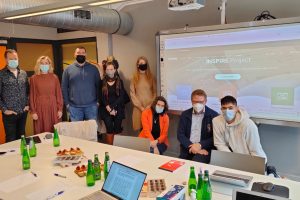Vocational Education and Social Organizations
Social organizations have specific ambitions in the social domain. They focus for example on human wellbeing, empowering people, supporting sustainable practices, or developing products or services that make a difference to how we live and work. Social organizations challenge our society to have a broader perspective on work and live than just earning money.
When we think of preparing and educating students for societal challenges in modern organizations, it is important to start with the largest group of students in our European educational system: students who study at vocational schools. In former years, these students were trained for specific jobs, but as we all know, current jobs might not be available in the near future, so vocational schools have developed their curricula to become more flexible towards the demands of the labour market of their students.
How important are social organizations in Vocational Education?
If study materials in Vocational Education are a way to measure this, we see that some societal challenges are being noticed, while other new challenges are not extensively treated in books and online resources used in Vocational Education. For example, topics such as sustainability, digitalization, and public health (healthy ageing) receive a lot of attention in study materials for students in vocational schools. However, less attention is given to broader issues regarding social well-being of (new) members of our society. That is remarkable, as these students have to become acquainted with language and culture issues in order to bridge the gap between school life and practice. Luckily enough, many students like to get engaged in gaining practical experience in NGO’s (e.g., Red Cross), regional or local organizations, such as food banks and thrift shops, companies that employ or train people with a distance to the labour market, and organizations that aim for preventive health, sports or wellbeing in local neighbourhoods.
Leaders and professionals in this kind of organizations often lack opportunities to explore and develop their own leadership skills. Within the framework of INSPIRE (Social Innovation and Leadership Skills for Third Sector Capacity Building) we have built a Social Leadership eLab that provides courses in which specific areas of leadership in social organizations are addressed. These courses are designed such that students with a vocational education background are able to participate and learn. Noorderpoort, a large school for vocational education in The Netherlands, supports the initiative and is involved in beta testing the platform.
This platform will help to bridge the gap in the availability of study materials in which social organizations receive the attention they deserve in our European society. We also invite other students with a vocational education background and/or interest in social organizations to learn and participate. See you in the Social Leadership eLab: https://learn2inspire.eu
Prof. Jan Riezebos, University of Groningen



